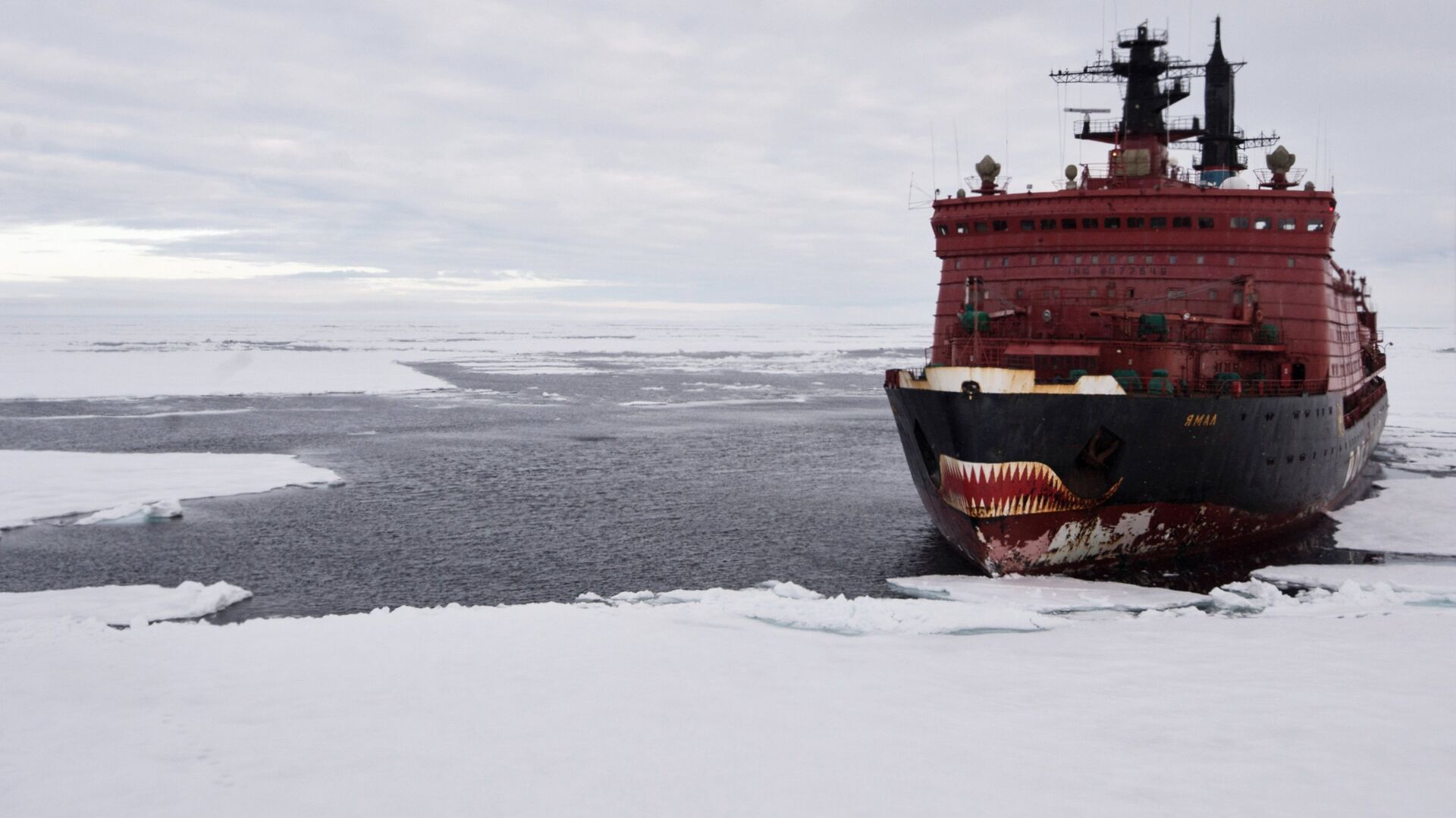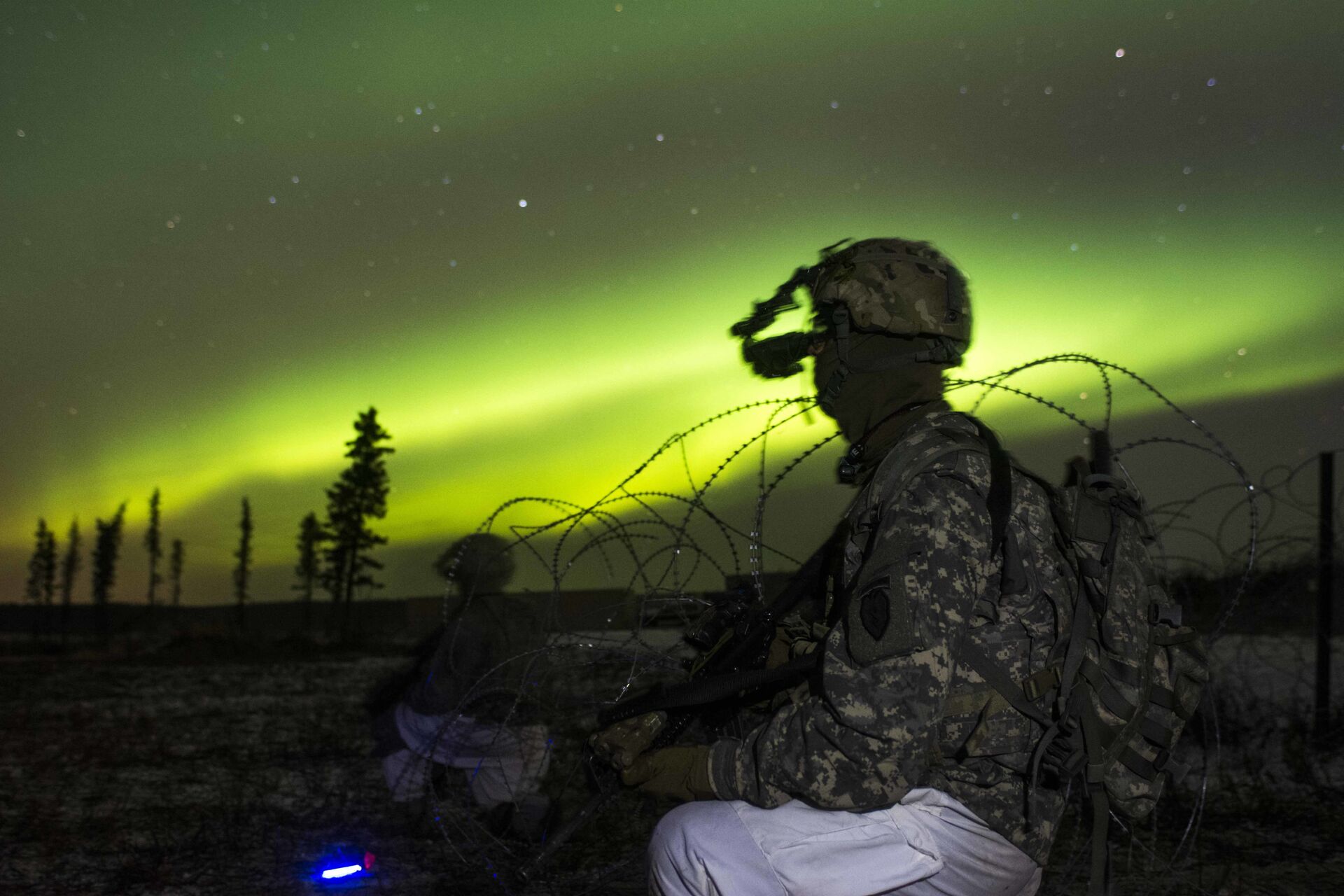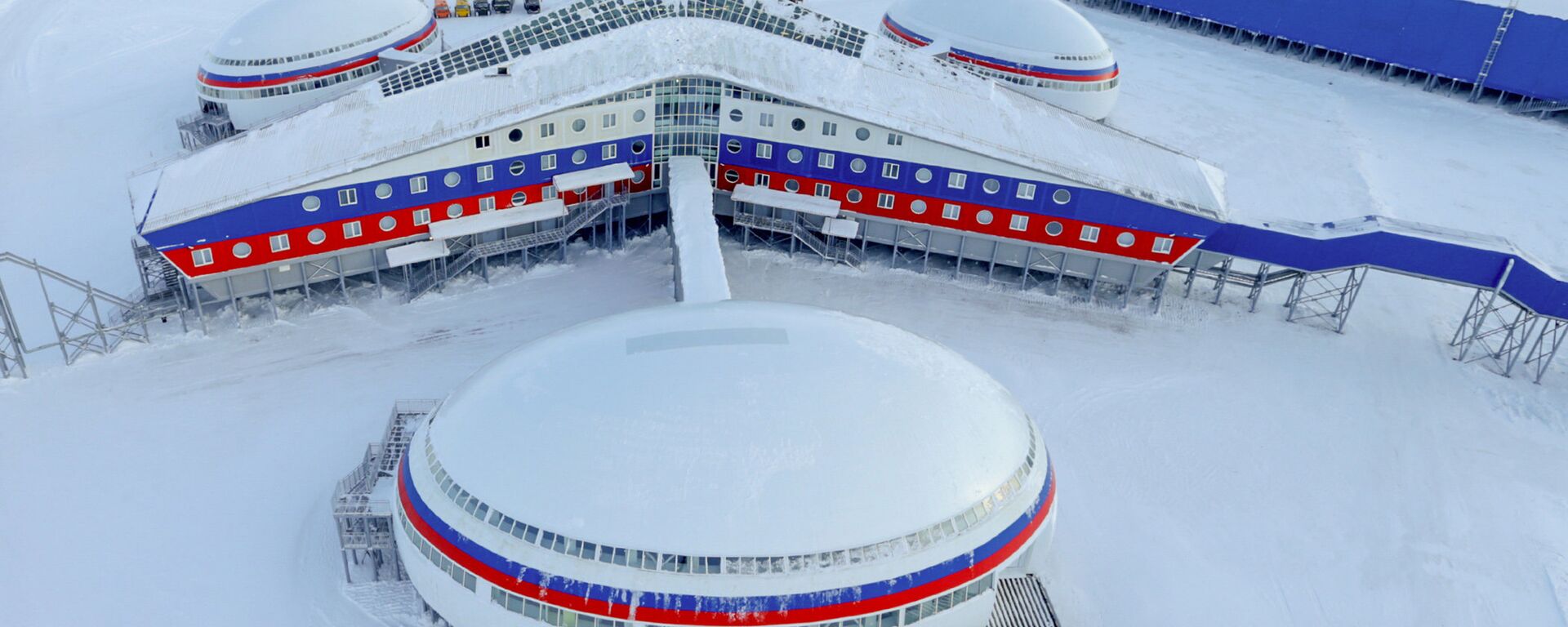Biden-Sacked Commissioner Claims US Lagging Behind Moscow in Arctic, Depends on Russian Oil

© Sputnik / Valeriy Melnikov
/ Subscribe
Since the Trump administration, the White House has been pursuing a goal of challenging Russia's presence in the Artic, making it one of the government's priorities. But, as Washington invested time and money in boosting the nation's military presence in the region, it apparently failed to keep up with Moscow economically.
The US is lagging behind Russia in the Arctic with it resulting in the country becoming dependent on oil sales from the very same nation it has slapped energy sanctions on so many times over the past few years, former commissioner of the independent US Arctic Research Commission (USARC), Thomas Emanuel Dans, claimed in an op-ed for The Hill.
Dans pointed out that Russia had become the second-biggest supplier of crude for the US and delivers twice as much oil as the Americans extract from the nation's resource-rich Alaska. In the course of a single month (June 2021), Washington purchased 25 million barrels of Russian crude. Sales have more than doubled since Biden took office.

In this Oct. 25, 2016 photo provided by the U.S. Army Alaska, paratroopers secure an area in view of the aurora borealis, or northern lights, during night live-fire training at Fort Greely, Alaska. The battalion spent much of Exercise Spartan Cerberus in subzero temperatures training in Arctic, airborne and infantry tasks.
© AP Photo / Staff Sgt. Daniel Love
Another change that occurred with the arrival of the Democratic administration is the composition of several independent commissions – Biden sacked four commissioners, Dans included, ahead of the end of their terms, which is unusual, and put his appointees in their place. Per the ex-commissioner, this is one of the reasons the US "having won the Cold War" with Russia is now "losing the frozen one".
"Scientific research is crucial to the United States' long-term ability to drive technological advancement, foster innovation, and protect our national interests, be they commercial, military, environmental, or social. Yet, politicised science fails. By attempting to terminate USARC's independent commissioners, the White House has done just this".
Russian Arctic Versus American Arctic
Both the US and Russia have a presence in the Arctic region – not limited to military matters. The latter became Washington's central focus under the Trump administration. Yet, it is Moscow that is making the most of it, according to Dans' op-ed.
The former commissioner drew parallels between Russian and American activities and policies in the Artic. Having faced the aforementioned sanctions against its energy sector that prohibited the purchase of foreign technologies for drilling and extracting gas and oil in difficult regions like the Arctic, Russia invested in creating its own. Moscow also, unlike the US, has a huge fleet of ice breakers – both conventional and nuclear-powered. As a result, the Russian energy industry in the Arctic is surging and will be bringing the country huge profits in the near future via LNG sales, the ex-commissioner believes.
In contrast, Alaska is not thriving despite the recent findings of new deposits of valuable resources, including oil and gas. Instead it is struggling to cover deficits in the budget, filled for the most part by selling hydrocarbons. The state has to burn through its reserve funds to subsidise the high costs of living in the Arctic, Dans points out, while it could be making a profit off of its resources if not for Washington's politically-driven agenda.
"With US energy independence fading in the rearview mirror, policymakers need to wake up about how to protect national security interests", Dans said referring to the country's increasing dependence on Russian crude supplies.
The former commissioner warns that the current White House's Arctic policies are bound to have even starker consequences in the future, affecting jobs, the country's security and economic growth. He brings up various valuable resources that can be found in large quantities in the Arctic, such as scandium – a rare-earth element used among other things in fighter jets and mostly imported in the US from the two countries Washington is at odds with – Russia and China.



